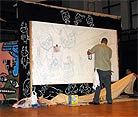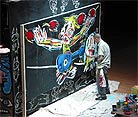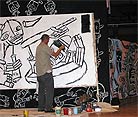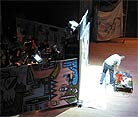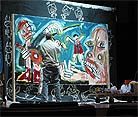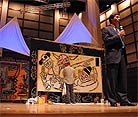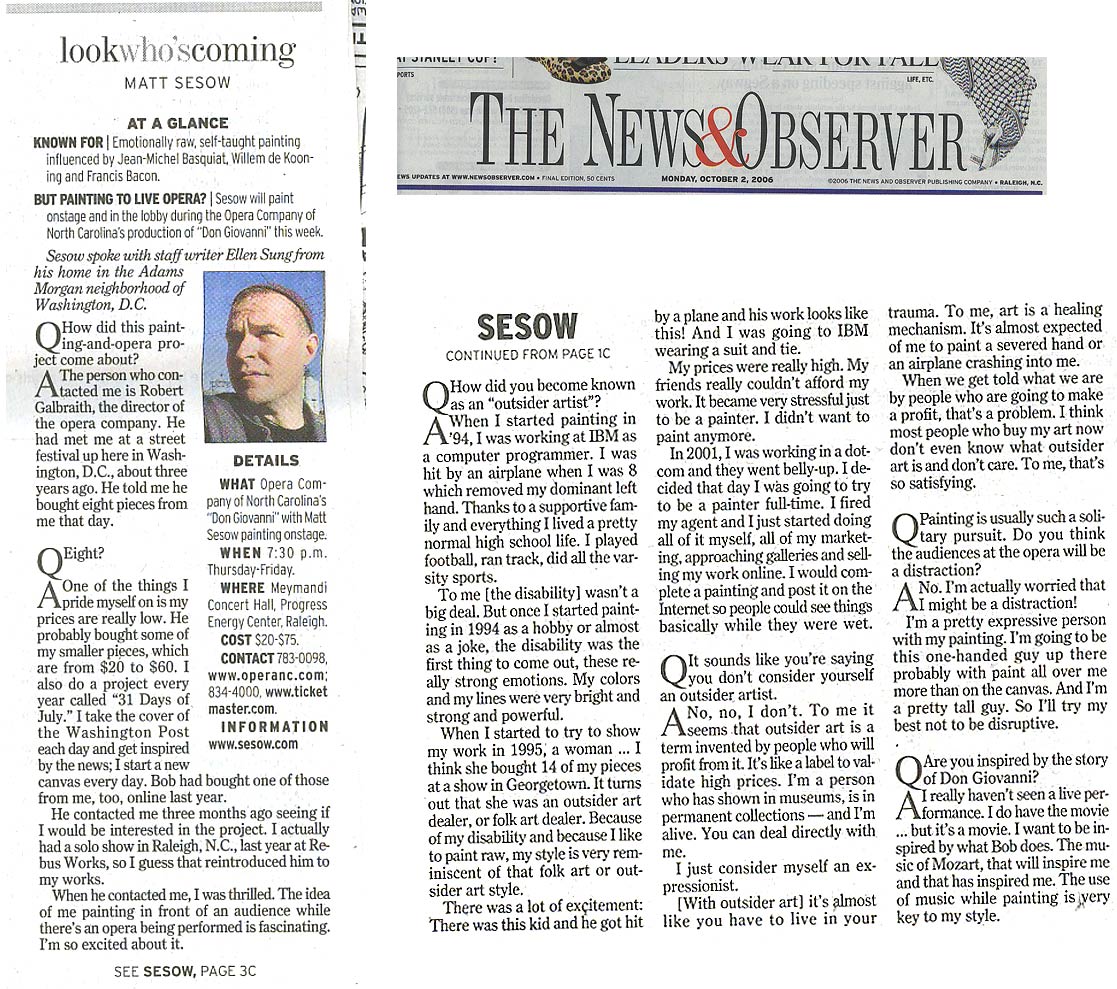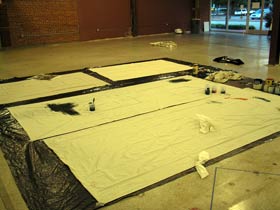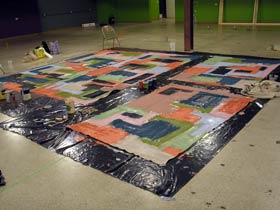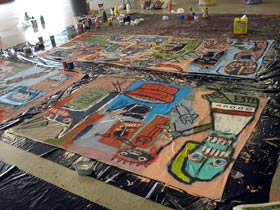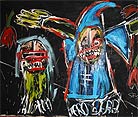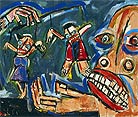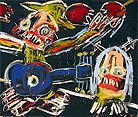RALEIGH - A closed-circuit TV cameraman roves the audience and then the stage, mingling with the cast of "Don Giovanni" as the performers scamper over scaffolding and chrome towers. As Mozart's arias flow, the singers' images appear on TV screens placed on the stage.
This is a new take on "Don Giovanni," a multimedia production that considers the Don Juan legend in the era of TV and YouTube. Presented in the year of Mozart's 250th birthday, the production also reimagines Opera Company of North Carolina in its 10th anniversary season.
"Our company is about to change very dramatically," said Frank Grebowski, the company's new general director. "Our presence in the community is about to increase several-fold."
"Don Giovanni" opens the first season in which the company is staging three full productions. Rehearsals began last week with an invitation to the public to drop by Cameron Village and watch the stars work.
Grebowski and artistic director Robert Galbraith, who founded the company with his wife, Margaret Poyner Galbraith, brainstormed a flood of ideas for reaching beyond opera's traditional audience -- performing scenes from "La Boheme" in shopping malls, starting discussion groups for "The Crucible" in schools, libraries and retirement homes, sending singers out with carols at Christmas.
The vision for "Don Giovanni" responds artistically to the goal of reaching people who perceive opera as overly refined and irrelevant to modern life. And it's the company's first attempt at original interpretation.
"It's the project I'm most excited about," Galbraith said. "It's a contemporary look that has never been seen in Raleigh before."
The singers will wear clothes from their own closets instead of lavish costumes. The stage will be strewn with what Galbraith calls "technical gadgets" -- scaffolding, kits, hanging sculpture, chrome towers and TV sets. With the roving camera and projected images, he said, he's contrasting reality television with the fiction of opera.
"There's a stronger, more profound reality in our storytelling, in our pretending, than what we're getting as our daily dose of reality on television," he said.
As an added element of interest, an artist will create two large paintings about the opera during each of the two performances. Matt Sesow of Washington, D.C., who paints in the outsider or contemporary folk style, will begin the first picture 15 minutes before the curtain rises and finish it before the overture. He'll also paint the second during intermission.
Along with the new comes something old: The orchestra will be on the stage rather than in a pit, which Galbraith said is true to Mozart's time.
Tapping resourcesThis departure from past productions reflects differences behind the scenes. Galbraith sees this as a pivotal time, and he wants the company to run more like a business. His newly shaved head is a radical switch from the ponytail he wore just a couple of years ago, but the changes he has in mind are more than cosmetic.
Up to now, Galbraith has stayed closely involved in running the company, even when he had a managing director on staff.
"It's time for me to get into the nuts and bolts of the artistic element and leave it to someone like Frank to guide the business," he said.
The company has a stellar track record artistically, but its history is written in red ink. Income from ticket sales and donations has increased in recent years, and Grebowski said he thinks the market is strong enough to double or triple the company's budget, which hovers just under $1 million. Yet the company, which has relied heavily on financing from the Gailbraiths, still operated at a loss last year, partly because it staged two operas for the first time since 1999.
The company is working with a consultant on how to recruit board members from a broader segment of the community who have access to money and other resources that haven't been tapped. And the company is paying attention to the Triangle's geography. Last season, it staged "Salome" in the newly refurbished Memorial Hall at UNC-Chapel Hill. Now Galbraith and Grebowski are surveying Durham's Brightleaf Square, where Triangle Opera staged shows in the open air for years. Opera Company of North Carolina absorbed Triangle Opera four years ago, and a return to Brightleaf seems fitting.
Galbraith has been talking for a long time about staging three operas in a season, and to him and Grebowski the time seems right. They chose works with an eye to younger audiences -- Robert Ward's "The Crucible" and Puccini's "La Boheme" follow "Don Giovanni" -- and hope to bring students into the opera fold.
"This is doing something more than saying 'opera is neat,' " Grebowski said. "This speaks to the kids: 'La Boheme' is popular with teens, they've read 'The Crucible,' everyone knows a Giovanni."
The company is also thinking of inviting students to rehearsals, visiting schools to talk about the issues and sing selections, and offering student discounts.
Losses ... and winsThe school outreach plan didn't materialize for "Don Giovanni." But that hasn't muted Galbraith's enthusiasm.
Nor did the loss of Lucas Meachem in the lead role. Galbraith thought he had talked the young North Carolinian, who sang the male lead in "The Barber of Seville" last spring, into returning. But the baritone dropped Raleigh for the Lyric Opera of Chicago, where he is stepping in as a last-minute replacement in "Iphigenie en Tauride" with star mezzo-soprano Susan Graham.
Galbraith can't complain: He landed Herbert Perry, a bass-baritone who appears on the DVD recording of Peter Sellars' controversial "Giovanni," set in modern Harlem. Soprano Kelly Cae Hogan, who sang Salome for the Triangle company in February, will return as Donna Anna.
Galbraith is also eager to tackle "The Crucible," which transposes the topic of 1950s political repression into the Salem witch trials. Ward, who lives in Durham, won the 1962 Pulitzer Prize for his opera.
"I think we're dealing with a lot of the same issues now," Galbraith said. "It's long overdue that we pay homage to his works here. It's getting a revival across America. I think we're seeing a rebirth of an American classic."
